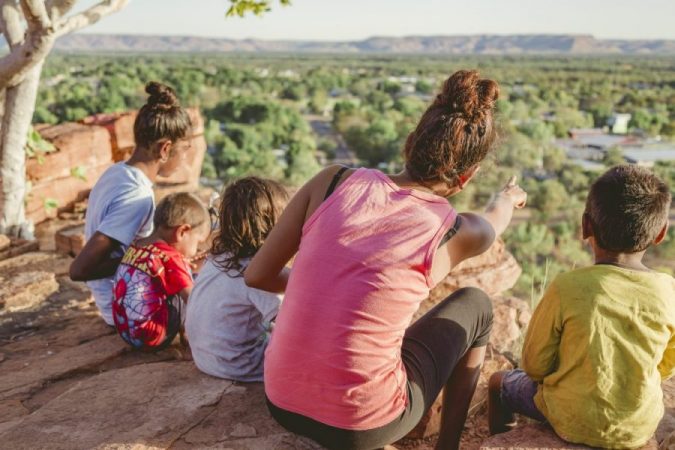Year in Review Highlights
![]()
Year At A Glance
45,466
Contacts with our Practice Assist service – website visits, enquiries and support requests, a 64% year on year increase
13,734
People accessed one of our primary mental health services, a 25% year on year increase
10 million
Views of our COVID-19 Inside My Mind campaign, sharing mental health resources with Western Australians in need.
279
Programs funded to improve the health and wellbeing of Western Australians
158
COVID-19 general practice resources produced including GP bulletins, factsheets, webinars and clinical HealthPathways.
527
general practices partnered with us to better understand patient data to improve health outcomes, a 19% year on year increase
574
Localised HealthPathways reached, up from 511, another 157 Pathways reviewed, and 315,241 page views of this online clinical support tool for GPs
96
Practices enrolled in our transformational change program, Comprehensive Primary Care
36,000
Services provided to support people with chronic conditions through our integrated service across country WA
434,467
My Health Record uploads of Shared Health Summaries and Dispense Records in June 2020, a 370% increase on June 2019
30,500
Visits to our online engagement platform, Primary Health Exchange, a 42% year on year increase
67,833
Services delivered to 4,042 Aboriginal people with complex chronic conditions through our Integrated Team Care program
Our Priorities
Read about this year’s achievements and the great work being done with our key partners and the community to deliver better health, together.
Aboriginal Health Aged Care Alcohol and Other Drugs Digital Health
Health Workforce Mental Health Population Health

Aboriginal Health
Improving the health of Aboriginal Western Australians is a critical concern.
We support the authentic participation of Aboriginal people and organisations in all levels of decision-making affecting their health needs, to help achieve Aboriginal health equity.
- Increasing access to culturally appropriate primary healthcare.
- Increasing patient literacy so Aboriginal people are empowered to participate more fully in their healthcare journey and take control of their health.
- Improving system integration to ensure better experiences for Aboriginal people accessing multiple parts of the health and social care system.
Integrated Team Care:A program working across multidisciplinary care models to support Aboriginal people to access well-coordinated, culturally appropriate mainstream primary care and supplementary services.
Integrated Team Care Country to City, Improving Patient Transitions: A project responding to feedback relating to the challenges faced by Aboriginal people off Country and staying in metropolitan areas for health treatment. Key to this was work we undertook in partnership with Moorditj Koort Aboriginal Health and Wellness Centre to trial a service model to address these challenges.
- Supported 4,042 Aboriginal people with complex chronic conditions to access 67,833 unique services, including care coordination and access to supplementary and clinical services, through the Integrated Team Care program.
- Enabled 32 Integrated Team Care coordination staff to upskill in self-management techniques to reduce potentially preventable hospitalisations through the Flinders My Health Story program.
- Increased confidence among 95 per cent of Country to City Program clients to make an informed decision about their health and medical care as a result of support received from care coordinators.
- Provided 313 general practices and 12 Integrated Team Care providers with resources and guidance, including a dedicated fact sheet, to support Aboriginal patients during COVID-19. This means one resource is available to all ITC clients, regardless of their location in WA, which is a significant achievement.
Read more:
Aged Care
Increasing access for older Western Australians to primary healthcare.

While many older Australians are living longer and healthier lives, many have mental and physical health concerns and lack appropriate access to primary care, as well as opportunities for social interaction and economic engagement.
- Improving older people’s access to timely and safe care
- Increasing the uptake of advance care planning
- Increasing the amount of GP-led health assessments for people aged 75 years and older
- Increasing the delivery of primary care in residential aged care facilities.
Psychological Therapy in Residential Aged Care Facilities Initiative: Low intensity, evidence-based psychological therapies and support services for people residing in aged care facilities with a diagnosed mental illness and those at risk of mental illness. Treatment is provided by registered and clinical psychologists onsite and was adapted during COVID-19 to support telehealth consultations.
Advance Project: A unique opportunity to work with general practice to build the capacity of everyone in the team to initiate informed discussions with patients about advance care planning and palliative care.
Great Southern Compassionate Communities Project: Increasing community awareness around end of life and empowering people to live and die well in their place of choice.
Lower Great Southern Age Friendly Charter: Serves to define the values and aspirations of older community members and how, together with service providers and government we can provide more opportunities for people to live long, healthy and happy lives.
- Provided about 2000 psychological treament sessions to people living in aged care facilities across WA with, or at risk of, a diagnosed mental illness.
- Supported 184 GPs in 16 practices to build their capacity to initiate informed discussions with patients about advance care planning and palliative care.
- Partnered with the City of Albany, Shire of Denmark and the Shire of Plantagenet to develop the Lower Great Southern Age Friendly Charter – nine key aspirations for the community, services providers and government to work together to support the ageing population within a local context.

Alcohol and Other Drugs
Providing services that respond to people as a whole.
People affected by alcohol and drug use, including individuals and their families, often also experience problems with mental health or have poor physical health.
We focus on providing services that respond to people ‘as a whole’ and encourage the joining up of services to make it easier for people to get the support they need. We work collaboratively to plan and fund quality treatment and support services and improve the skills of the health workforce to better support those who seek help. We are also committed to improving the early detection of harmful alcohol and other drug use – through screening and brief intervention – to potentially avoid serious or longer-term health and social problems.
- Investing in accredited, evidence-based and culturally appropriate treatment services in areas of high need.
- Building capability within primary care to recognise and respond to alcohol and drug use in a holistic, person-centred way.
- Prioritising integrated solutions to increase access and improve effectiveness of responses to comorbidities inclusive of mental and physical health.
Roebourne alcohol and other drug support for children: Therapeutic services delivered as part of a coordinated, multi-agency approach to prevent and reduce harm from drug and alcohol use among children aged 8-14 years and their families in Roebourne.
Peer Support SMaRT: Engagement of peer workers to facilitate the Self-Management and Recovery Training (SMaRT) group program to support individuals with co-occurring alcohol and other drug issues and mental illness.
Youth Alcohol and Other Drugs Outreach Hub: An integrated treatment and support service for young people aged 12-25 years in the Perth Metropolitan area at risk of or experiencing problems with alcohol and other drug use.
Support for women who are pregnant or parenting: Specialist treatment and support service designed to minimise the harmful effects of alcohol and other drug use on maternal, foetal and child health and wellbeing.
- Continued to build the capability and confidence of primary care practitioners to talk to their patients about alcohol and drug use through education and training initiatives including hosting 11 TADPole (Treating Alcohol and Drugs in Primary Care) events, attended by 60 people. Participants overwhelming reported that the learning outcomes and their learning needs were entirely met and that the education activities were relevant to their practice.
- Continued to commission culturally appropriate drug and alcohol services including 18 dedicated services for Aboriginal people across the State.
- Participated in the Mental Health Alcohol and Other Drug Community Services Taskforce to respond to the impacts of the COVID-19 pandemic on people with existing or emerging alcohol and other drug use issues.
- Completed a nurse led patient recall and practice improvement project in regional and metropolitan WA, as part of a number of ongoing strategies to improve Hepatitis C screening and treatment rates in general practice.
- Supported the coordinated commissioning of specialist treatment and support services through active engagement with the WA Mental Health Commission and WA Network of Alcohol and other Drug Agencies.
- Following clinically and culturally focused collaboration and research guided by a multi organisational steering group, implemented the Roebourne alcohol and other drug support for children model, including the commissioning of alcohol and other drug, mental health, family case management and therapeutic services.
- Acknowledged nationally, with a senior counsellor from one of our commissioned services receiving the Australian Heath Care Worker of the Year award in recognition of his work with communities in the remote Northern Goldfields.
Digital Health
Digital health helps us to identify priorities, link services, and fund options for better care.

Digital health is an enabler of coordinated and integrated primary healthcare. It is streamlining our healthcare systems, improving patient care and communication, and ensuring better informed treatment decisions. It is also helping address inequity due to workforce shortages and long distances. The COVID-19 pandemic has been a catalyst for digital health, seeing unprecedented advances in the uptake of tools such as telehealth and e-prescribing.
- Enhancing access to health through telehealth, particularly for people who find it difficult to physically access primary health care services.
- Improving integration and streamlining service provision between health service providers and helping people to take greater control of their health by encouraging the uptake of digital tools such as My Health Record within general practice, pharmacy, residential aged care, and among allied health professionals and private specialists.
- Supporting general practices to share de-identified data to advance continuous quality improvement initiatives.
- Led the delivery of one of only two Digital Health Communities of Excellence nationwide to support better connected health care, improve transitions of care and improve digital health literacy.
- Progressed the development of a secure, data storage and analytics system, known as Primary Health Insights, available to all PHNs Australia-wide, following agreement by WA Primary Health Alliance to be the lead PHN for this project. Due to go live in late 2020, it will support a PHN network approach to receiving, storing, validating, managing, protecting, and transferring data, including Practice Incentive Program Quality Improvement data to ensure timely processing for GP payment incentives, with the ultimate goal of improving health outcomes for Australians. As part of the project WAPHA has led work to strengthen data governance policy and procedures across the PHN network, and build the capacity of PHNs to analyse and use data to inform decision-making.
- Engaged with every Residential Aged Care Facility in WA to encourage My Health Record registration to decrease potentially preventable hospitalisations, improve quality of care, and support to self-management.
- Provided about 180 practices with access to and encouraged uptake by our commissioned services to the HealthDirect video calling platform, to increase utilisation of telehealth during COVID-19.
- Supported a peak consumer body to deliver an education and awareness campaign to encourage people with chronic conditions to utilise telehealth with confidence.
- Provided health professionals with accurate and timely information and a platform for support and knowledge sharing during COVID-19 through a series of webinars and virtual Communities of Practice.
- Organised virtual ‘Lunch and Learns’ to support practices to deal with vital infection control issues and frequent systematic changes (particularly telehealth MBS items) through embracing virtual consultations, understanding the impact on billing practices, and supporting their staff with psychological safety.
- Uploads of Shared Health Summaries and Dispense Records increased by 370%
- Total Document Views increased by 850%

Health Workforce
We build the capacity and capability of the primary healthcare workforce to help more people access the care they need.
A sustainable and viable primary health care workforce is an essential enabler that helps us to achieve our vision of equitable health outcomes for all Western Australians. By working with general practice and other health professionals, we are delivering better health together.
- Supporting primary healthcare providers to manage chronic disease populations and build capacity for patient self-management.
- Increasing access to allied health services and chronic disease management programs provided by allied health practitioners.
- Building general practice workforce capability to recognise and respond to alcohol and other drug related issues.
- Ensuring the capacity and capability of general practice in delivering urgent care is better utilised.
GP Urgent Care: An 18-month GP Urgent Care Network Pilot designed to enhance capacity within community-based GP clinics to treat patients with urgent but non-life-threatening medical conditions.
Health Professionals Networks: Collegiate groups aiming to provide rural and remote health professionals with better support and greater opportunities to network, upskill, share information and collaborate in a local community environment.
Grow Local Certificate IV in Mental Health: A program to grow and support mental workforce and support regional communities experiencing difficulty in recruiting and retaining culturally appropriate mental health workers. Grow Local offers a Certificate IV in Mental Health and is delivered in partnership with the AMA (WA).
- Launched the GP Urgent Care Network Pilot, in conjunction with WA Health, in Perth Metropolitan area and Bunbury/ Busselton region.
- Supported about 140 GP Urgent Care Network practices to participate in the Pilot, including upskilling workshops delivered with the Royal Australian College of General Practitioners WA, Benchmarque and the University of Western Australia.
- Launched three Health Professionals Networks in partnership with many key partner organisations in the South West, Goldfields and Pilbara, with the Midwest network expected to launch before the end of 2020.
- Supported general practice through our HealthPathways WA team, reaching a target of 550 localised HealthPathways, achieving a record 36,418 monthly page views in May 2020, developing a suite of 12 COVID-19 specific pathways to support general practitioners during the pandemic, running six GP education events with 199 GP participants, and facilitating four collaborative multi-disciplinary working groups to support the development of new Health Pathways.
- Ran Grow Local training in six regions, with more than 100 community members enrolled in this mental health training course.
Mental Health
Mental ill health is one the biggest health challenges for Western Australians.

The importance of mental health is reflected in the 68% ($86 million) of our Australian Government funding dedicated to mental health programs that promote early intervention to reduce the impact and escalation of mental illness.
- Increasing access to local, low cost mental health services to reach those people and communities in areas with limited service availability but high demand, those who are most disadvantaged and those most at risk of poor health outcomes.
- Building capacity within general practice to recognise and support patients with mental health conditions and ensure GPs are aware of clinical pathways and referral processes.
- Increasing access to early intervention services to prevent escalating acuity and reduce the burden on acute and emergency department presentations.
- Leading the implementation of the Alliance Against Depression (AAD), a key strategic approach to achieving the vision of health equity in WA.
- Tailoring evidence-informed approaches to suicide prevention for at-risk populations in regional areas.
Practitioner Online Referral Treatment Service (PORTS): A service providing telephone and online treatments by registered mental health professionals to people experiencing financial and/or locational disadvantage .It plays a central role in ensuring equity for those in need of, and unable to, access face-to-face mental health services, with GPs having the option of referring directly to the service.
Suicide Prevention Trials: As part of the national Australian Government Suicide Prevention Trial, we oversee three Trials in Perth South, the Midwest and the Kimberley. Each site was selected due to its higher than average suicide rate. The Trials aim to find the most effective approaches to suicide prevention for at-risk populations and to share this knowledge across Australia.
Alliance Against Depression: The strong link between depression and suicide requires a focus on improving access to primary mental healthcare for all people. Based on evaluated trials, the AAD is an internationally accepted practice for the care of people with depression and in the reduction of suicidal acts. It has informed the activities within the Perth South and Midwest Suicide Prevention Trial Sites.
- Continued year-on-year increase in access to primary mental health care for Western Australians through the services we fund, with the number of clients, service contacts and episodes of care provided up across all three WA PHNs.
- Approximately two thirds of people categorised as presenting with severe-/very severe distress reported significant improvement following an episode of care, noting services are increasingly being accessed by people with extreme levels of psychological suffering.
- Increased mental health outcome measurement compliance reporting by our funded services from 51 per cent to 80 per cent.
- Responded to COVID-19 and the increase in demand for mental health support in a number of ways:
- Continued to offer people access to high quality virtual psychological care to people experiencing financial and/or locational disadvantage throughout WA that would otherwise be unavailable. The virtual nature and reach of the PORTS service, provided immediate telephone and online treatment by registered mental health professionals.
- Provided financial assistance to our commissioned service providers to mobilise their workforce to provide telehealth services.
- Ran a COVID-19 mental health support campaign, garnering 10 million views.
- Launched the See Your GP campaign to restore people’s confidence and increase appointment bookings for all conditions, including mental health issues.
- Mental Health Access to Services – Possible COVID-19 effects
- Face to face contacts have decreased from 43% to 27% of all contacts since 1 March 2020
- Telephone contacts increased from 29% to 47% of all contacts since 1 March 2020
- Video contacts have increased from 0.1% to 1.2% of all contacts since 1 March 2020
- Video contacts have increased from 0.1% to 1.2% of all contacts since 1 March 2020
- Contributed to the Productivity Commission Mental Health Enquiry, to address barriers to access created by the siloed nature of funding and service provision. Our solution could address many of the problems faced by people with lived experience of mental illness or suicidal behaviour, and their carers and families, including fragmentation of services and pathways, gaps, duplication and inefficiencies in service provision.
- Co-designed an after-care coordinator service trial in the Wheatbelt (a region with a shortage of appropriately skilled mental health workforce and a mortality rate from intentional self-harm 1.4 times higher than the state average), connecting people with vital community-based support, on discharge from a hospital emergency department following a suicide attempt. Clients reported a 70 percent improvement in psychological distress and 75 per cent felt more positive about their health improving.
- Uncovered important insights through a co-design process involving multiple stakeholder groups into how young people want to engage with a mental health and wellness service. The result, Amber Youth Wellness, is an outreach service run by Mercy Care empowering young people to play an active role in their own mental health management.
- Commissioned an independent evaluation of the headspace Pilbara Outreach Trial, the only such model in Australia, which confirmed the model’s success,particularly with regard to engaging hard to reach youth, achieving system reform and trying new approaches.
- Began planning the expansion of the existing 13 headspace services in WA, working towards opening four additional centres and four satellite services soon.
- Supported local Alliances to develop, including Rockingham who engaged over 90 stakeholders for their community launch on World Mental Health Day 2019 and City of Kalamunda who partnered with a community leader to coordinate and deliver AAD as a priority.
- Educated over 1000 clinicians, community members and local government representatives on how AAD can benefit their communities.
- Launched an online discussion hub to connect local Alliance leaders to each other and the European AAD and AAD Coordination Centre.
- Supported the Chapman Valley Men’s Shed Shinema Project develop a drive-in cinema bus, converted and run by local men, to combat social isolation in rural Midwest communities, with funding committed for the 2020/21 financial year, to visit five more rural communities.
- Supported the Peel and Rockingham Kwinana Community Response Steering Group to trial a Postvention Community Response , an Australian first, to provide immediate wrap-around support for families, friends, and colleagues bereaved by suicide.
- Funded a patient care navigator position within Active Response Bereavement Outreach (ARBOR), to facilitate pathways of support for the bereaved and to continue to strengthen postvention activities, beyond completion of the Pilot.
- Facilitated the establishment of and continuation of community liaison officer roles in communities across the Kimberley to support local social and emotional wellbeing initiatives.
- Supported the Wirnan Creative Project to promote and share intergenerational knowledge and strengthen culture, which is essential for the social and emotional wellbeing of local communities, particularly young people. Gija Elders and Ngalangangpum School embedded culture in the curriculum including bush trips, and information about language groups, kinship and art.
- Launched Wot Na Wot Kine, a campaign by and for Kimberley young people to encourage them to open up and share their problems. The campaign was widely viewed by local young people with more than 70,000 video plays, 5000 listens on Spotify, and 800 spots across local television and radio.

Population Health
Improving population health contributes to the wellbeing of communities across our State.
Population health describes the range of activities we undertake that contribute to the wellbeing of communities across our State, including improving chronic disease early intervention and management, immunisation and cancer screening.
Funding services to support people with chronic conditions that keeps them well and out of hospital and supporting general practices with current information on immunisation and cancer screening programs helps to deliver better health, together.
- Improving the management of chronic disease in primary care and reducing rates of potentially preventable hospitalisations by working with primary care providers to target high quality health care for priority populations.
- Increasing childhood immunisation rates within regions not meeting national immunisation targets.
- Increasing influenza immunisation rates, particularly for older adults.
- Increasing access to cancer screening programs, by working with general practice and other stakeholders.
Integrated Chronic Disease Care: A service that provides country-based clients access to clinician treatment services and supports them to maintain independence, self-manage their condition and, most importantly, improve their health and wellbeing.
Healthy Weight GP Project: Part of the WA Healthy Weight Action Plan 2019-2024, a joint initiative of WA Health, WA Primary Health Alliance, and Health Consumers’ Council. The project will provide an online Healthy Weight ‘hub’, housing tools and resources to support GPs and practice staff to identify patients who are above a healthy weight range, refer patients to appropriate weight management services or programs and provide support and motivation.
Chronic Heart Failure: Targets specific areas with higher than average rates of chronic heart failure and engages primary care and hospitals to improve care for people living with chronic heart failure through transitions of care, care coordination and service linkages. This includes facilitating a multidisciplinary heart failure team, trialling models to strengthen integrated care for chronic heart failure and developing workforce capacity to be effective partners in a multidisciplinary model of care.
South West Chronic Conditions Collaborative: A multi-agency group focused on increasing self-management, improving health outcomes and preventing avoidable hospitalisations among people with chronic conditions, with a particular focus on chronic heart failure, chronic obstructive pulmonary disease, diabetes and renal disease.
COVID-19 Respiratory Clinics: In response to COVID-19, WA Primary Health Alliance worked with the Australian Government Department of Health to establish GP-led respiratory clinics across Western Australia to assess and treat people with mild to moderate respiratory conditions, including testing for COVID-19. This is part of a national initiative, with about 150 Respiratory Clinics across Australia.
- Led the establishment of 12 GP respiratory clinics across Western Australia in response to COVID-19.
- Supported general practice to address weight management with patients through reviewing available resources and identifying barriers, enablers and gaps to engage with patients in weight identification and intervention.
- Commenced developing an online resource and education hub to support general practice with weight management identification and intervention.
- Partnered with the Australian Practice Nurses Association to support six general practices to establish a chronic heart failure nurse clinic in targeted areas of Western Australia.
- Selected to join the Health Round Table and Integrated Care Improvement Group in April 2020 and invited to showcase the South West Chronic Conditions Collaborative’s work at a virtual online event, including the pilot below.
- Contributed to the Western Australian Women’s Health and Wellbeing Policy, a strategic, coordinated and gender-responsive approach to optimise the health, safety and wellbeing of women and girls in WA.
- Partnered with WA Country Health Service to provide targeted care and support to vulnerable patients at an increased risk of complications due to COVID-19.
- Sustained success demonstrated in hospital data with reduced emergency department attendances, reduced length of stay and reduced inpatient admissions for a target cohort of people with two chronic conditions, as part of a joint pilot with WA Country Health Service to develop a better model of care for people admitted to Bunbury Hospital. The graph below tracks progress among a cohort of 220 patients over 24 months, which led to cost avoidance of more than $1.5 million.
Read more:
COVID-19
As the COVID-19 pandemic unfolded, we mobilised our team to ensure we could adapt and respond to a rapidly changing environment.

As part of the state and federal health system, our focus was to work in partnership with governments, other organisations, health professionals and our funded service providers to ensure the Western Australian community could continue to access high quality primary health care.
- Facilitated the establishment of 12 GP Respiratory Clinics in WA, as part of the national primary health response to COVID-19.
- Developed and deployed the logistical strategy to distribute masks from the National Stockpile to GPs and pharmacies across WA, with almost 222,000 masks distributed in the first three months.
- Developed 12 COVID-19 specific HealthPathways ranging from clinical information on assessment and testing, to setting up practice workflows and the impact on local services. This resulted in a 200% year on year increase in website usage.
- Quadrupled our Practice Assist workforce duringthe height of the pandemic to respond to a 500% increase in requests for support from general practice.
- Established a bespoke training and support package for the HealthDirect telehealth platform, delivered to more than 140 general practices.
- Facilitated a series of Virtual Communities of Practice events focusing on key topics confronting general practice.
- Supported general practice and commissioned service providers to interpret rapidly evolving federal and state government policies, particularly with regard to MBS telehealth items, telehealth and electronic prescribing through targeted and timely updates.
- Supported the Australian Government with evidence-based selection of Respiratory Clinic locations through developing interactive maps that plotted available health services (including emergency departments) against populations more vulnerable to poor health outcomes as a result of COVID-19.
- Supported pandemic planning initiatives through securing access to a data feed of up to date information on COVID-19 cases and hotspot locations.
- Supported commissioned service providers during COVID-19 with up-to-date advice, readiness plans, resources and additional funding to increase workforce mobility and assure the safety of their staff and clients.
- Advocated nationally as part of the national PHN network to amplify the important role of PHNs in stewarding primary care through the pandemic.
- Advocated on behalf of primary care through participation in various health and social services interagency bodies on topics including influenza vaccine supplies, private pathology providing COVID-19 testing, inclusion of GPs in COVID-19 patient discharge pathways, inclusion of a person’s Aboriginal and Torres Strait Islander status on pathology request forms and, overall, improved communication between hospitals and GPs.
- Provided free access to EAP counselling services to WA general practice teams and our commissioned service providers to help navigate the COVID-19 response, including assistance to deal with the pressures that arise professionally and personally.
- Negotiated an unprecedented partnership with six medical and health agencies to produce a daily COVID-19 bulletin for GPs.
- Our See Your GP campaign materials developed in response to a decrease in general practice presentations (believed to be related to COVID-19 fears), were seen online more than 5 million times and downloaded more than 1000 times by general practices and other organisations. The campaign also reached close to half a million newspaper readers.
- Produced a concise guide to accessing mental health and alcohol and other drug support during COVID-19, to help referrers and patients to find the services they needed.
- Launched a COVID-19 mental health support campaign, garnering 10 million views.
- Supported our staff and stakeholders to navigate the pandemic through establishing Emergency Response and Plan Ahead Teams to help our workforce transition to working remotely and make subsequent decisions about the way we work. Read our case study.
- Focused on shaping WAPHA to emerge as a stronger, agile organisation, including exploring the many possibilities caused by the disruption of COVID-19 and reimagining our ways of working and interacting with our stakeholders.

People and Culture
The key to success lies with our people, our most important asset.
Our ongoing investment in our people and culture aims to provide an environment that helps employees feel connected to their workplace, where they have a sense of purpose and fun in their day to day work, and where they can play their part in delivering better health, together. We do this by attracting, recruiting and retaining talented employees, building their capability and supporting their career development in an environment where employees feel motivated and supported to achieve their best.
- Enable more efficient ways of working through realigning of departments, roles and responsibilities to strengthen existing functions and build our capacity to utilise data in service planning, project management and quality assurance and risk management.
- Commenced development of our People Strategy to ensure our people and culture are aligned with our 2020-2023 Strategic Plan and build capacity and capability for the future. This will include better use of data analytics and the creation of a strong employee value proposition, including defined career pathways and appropriate remuneration.
- Recruited and onboarded 86 new staff including seven of those virtually.
- 87 per cent of our staff responded to our benchmarking staff satisfaction study, rating us as having a ‘culture of ambition’.
- Supported our staff to adapt to working in a virtual environment through:
- Providing a virtual recruitment and onboarding process. Read our case study.
- Providing extensive health and wellbeing support and information to staff, and supporting managers to lead in a virtual setting.
- Providing significant online training and support to help our staff adapt and thrive in the remote working environment.
- Ensuring our Culture Program remained active as we transitioned to working remotely, giving staff the opportunity to meet virtually with their colleagues from across section of the organisation.
Rainbow Tick:
“The Assessment Team commend the high level of the WAPHA staff commitment to improving health outcomes, their evidence-based solution focus, their collaborative approach internally and externally and the organisational culture of positive and supportive teamwork and learning across all levels and roles. The coherence and alignment between what WAPHA says and what it does is evident across the organisation.” – extract from our accreditation report.
- Achieved full Rainbow Tick accreditation in recognition of the fact we uphold a high standard of diversity and inclusion and are committed to ensuring people of diverse sex, sexuality and/or gender have access to safe, inclusive and culturally appropriate healthcare.
- Developed pronoun cards for general practices to encourage gender diverse patients to start a conversation with practice staff. Read our case study.
- Provided the LGBTI community with opportunities to provide feedback on our pronoun cards and encouraged them to start a conversation with staff at their general practice.
- Marched as an organisation in The Perth Pride Parade 2019.
While most of our work goes on quietly and our people do not seek accolades, there are some special achievements we would like to share.
- Board Chair, Dr Richard Choong was appointed to the Sustainable Health Independent Oversight Committee to oversee and guide the health system as it works to implement the Review.
- Board member, Professor Rhonda Marriott was awarded the Membership of the Order of Australia in the General Division for her leadership, dedication and significant service to tertiary education, Aboriginal health and nursing.
- Our Inside My Mind campaign was shortlisted for the Australian Institute of Management WA Pinnacle Awards, Marketing Excellence category. The campaign was to raise awareness of depression and anxiety, encourage people to reach out and get help and start their personal journey back to good mental health.
- CEO, Learne Durrington was appointed to the Board of the Australian Digital Health Agency, the body tasked with improving health outcomes for all Australians through the delivery of digital healthcare systems, and implementing Australia’s National Digital Health Strategy.
- General Manager Strategy and Engagement, Chris Kane, was appointed to the Board of the Australian Healthcare and Hospitals Association, the national peak body for public and not-for-profit hospitals and healthcare providers.
- General Manager Primary Care Innovation and Development, Bernadette Kenny and Assistant General Manager Strategy and Engagement, Dr Erica Davison were inducted as Fellows of the Australasian College of Health Services Management, in recognition of their excellence in this field.
- General Manager Strategy and Engagement, Chris Kane was appointed to the WA Government’s Voluntary Assisted Dying Act Implementation Project?Leadership Team to provide expert advice to WA Health as well as overseeing, co-ordinating and facilitating the work required to prepare for voluntary assisted dying in Western Australia.
Financial Snapshot
Our funding of community-based treatment and support services has increased by 215 per cent over the five years since our inception, to reach $126 million in 2019 -20.
Mental Health and Suicide Prevention
$53.7m
Aboriginal Mental Health
$3.3m
Flexible Funding
$16.1m
Psychosocial Support
$29.1m
Health Care Homes
$0.2m
Greater Choice for At Home Palliative Care
$0.3m
Integrated Team Care
$9.2m
After Hours
$4.2m
Drug and Alcohol Treatment Services
$8m





